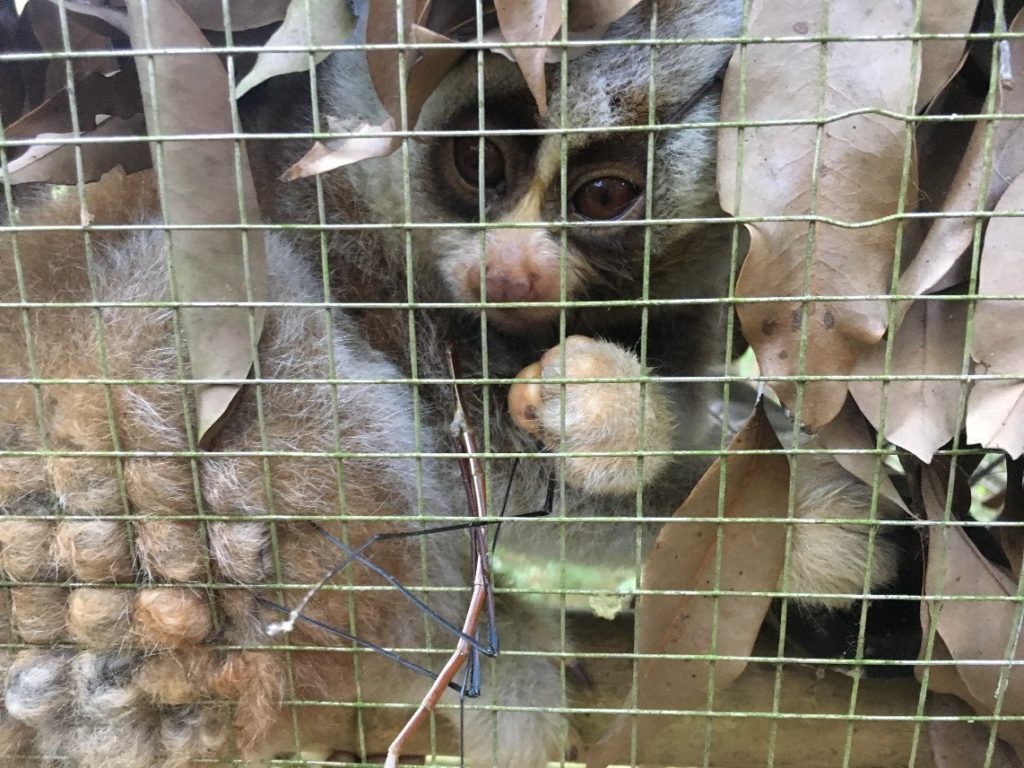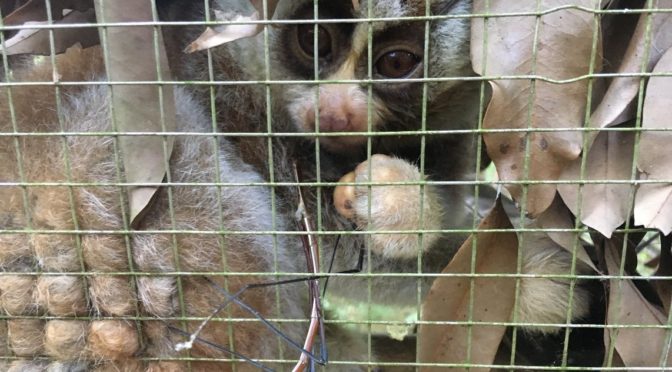Hello everyone and welcome to my final Culi Tuesday! I leave for Hanoi on the second, and then I am taking a couple days to rest up before I back to Oxford Brookes to continue working on my dissertation for the next month! I’ll be happy to be out of this Vietnamese humidity, but I’ll be missing being able to see the slow
lorises everyday at the Endangered Primate Rescue Center.

Animals that can never leave the EPRC
For today, I thought I’d talk about the animals that can never leave the EPRC. Besides both pygmy and Bengal slow lorises, there are multiple species of gibbons and langurs that call the EPRC home. Many of the primates at the EPRC do not have the skills to survive in the wild and, even if they do have the ability to make it in their natural habitat, with poaching still such a problem in Vietnam, there is no safe place to release most of them. We are lucky that there are at least some places left that are (relatively) safe to releases the lorises. However, the slow lorises behaviour is still an important factor in whether or not they can be released. Sought for use in Asian medicines and kept as pets, a loris that sleeps down low and gregariously approaches humans for food is practically begging to be kidnapped from the wild. Ideally, a slow loris should be sleeping high in the canopy and be extremely wary of humans.
11-47
One way I’ve come to test the gregariousness of the slow lorises is by offering stick bugs to them in both the day and night time and recording their response. I’ve been growled at, had lorises recoil their heads, hid the back of their enclosure, run away behind leaves, and freeze as soon as they are illuminated by my red light. But, three Bengal lorises at the Center decided to unfortunately break the mold and approach me when offered a stick bug at night. Of these three, one also sleeps mid-height in his enclosure as opposed to up high like the rest of the lorises at the EPRC. He also has taken stick bugs and tree gum from during the day. Currently, known only as 11-47, he will likely never again roam the forest he once called home and live a normal slow loris life. To make the best out of a bad situation, however, he will be used as an example to educate visitors to the EPRC on why the primates and other wild animals of Vietnam should never be removed from their habitat in the first place. It is my hope that in the future, through increased education and environmental law enforcement, no more 11-47s will come through the EPRC’s doors!
11-47 and the “gregarious test”
Below are two videos of 11-47 failing my ‘gregarious test’.

